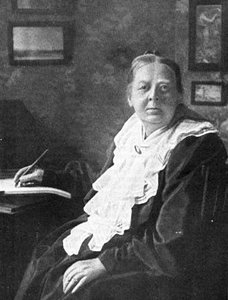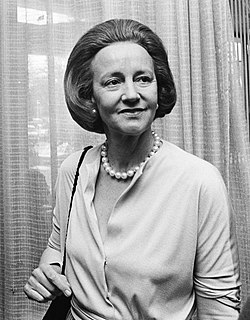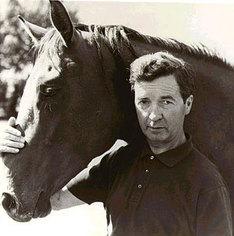A Quote by H. L. Mencken
We have had more brilliant Presidents than Cleveland, and one or two who were considerably more profound, but we have never had one, at least since Washington, whose fundamental character was solider and more admirable.
Related Quotes
Never had the sky been more studded with stars and more charming, the trees more trembling, the odor of the grass more penetrating; never had the birds fallen asleep among the leaves with a sweeter noise; never had all the harmonies of universal serenity responded more thoroughly to the inward music of love; never had Marius been more captivated, more happy, more ecstatic.
I don't pick my presidents because they were great presidents. I'm not much interested in ranking presidents and who is the best and who is the worst. I am much more inclined to be interested in them if they had an interesting life and if they were a complete person - and by that I mean they also had flaws and failings.
Brains and character rule the world. The most distinguished Frenchman of the last century said: Men succeed less by their talents than their character. There were scores of men a hundred years ago who had more intellect than Washington. He outlives and overrides them all by the influence of his character.
What is natural in me, is natural in many other men, I infer, and so I am not afraid to write that I never had loved Steerforth better than when the ties that bound me to him were broken. In the keen distress of the discovery of his unworthiness, I thought more of all that was brilliant in him, I softened more towards all that was good in him, I did more justice to the qualities that might have made him a man of a noble nature and a great name, than ever I had done in the height of my devotion to him.
The twentieth century saw an amazing development of scholarship and criticism in the humanities, carried out by people who were more intelligent, better trained, had more languages, had a better sense of proportion, and were infinitely more accurate scholars and competent professional men than I. I had genius. No one else in the field known to me had quite that.
Mathematics had never had more than a secondary interest for him ; and even logic he cared for chiefly as a means of clearing the ground of doctrines imagined to be proved, by showing that the evidence on which they were supposed to rest had no tendency to prove them. But he had been endeavouring to give a more active and positive help than this to the cause of what he deemed pure religion.
When in 1969 I became publisher of the 'Washington Post' as well as president of the company, my plate was fuller than ever. I had partly worked myself into the job but not, except for rare occasions, taken hold. I had acquired some sense of business but still relied on others more than most company presidents did.
For more than two generations, my family had never achieved their ambitions. Their talents were unappreciated and unused. They deserved better. They hadn't done anything wrong; they just had some bad breaks. Why was I succeeding? Why was I living my dreams? I wasn't more deserving than they were. I wasn't smarter or a better person. What was the difference between us that allowed me to attain so much in a short time? America. America was the difference. I had been born a citizen of the greatest nation in all of human history.
There's more attention paid to entertainers than ever and less that they have to say. Not that entertainers were ever a great beacon of knowledge to begin with, but at least when the Beatles were the leaders of the culture, they had a message. It was brief; it wasn't terribly complicated. "Give Peace a Chance." "All You Need is Love." But at least they were trying. At least they had grown.
The Presidency is not merely an administrative office. Thats the least of it. It is more than an engineering job, efficient or inefficient. It is pre-eminently a place of moral leadership. All our great Presidents were leaders of thought at times when certain historic ideas in the life of the nation had to be clarified.
People were actually 6 times more likely to buy a jar of jam if they had encountered 6 than if they encountered 24, so what we learned from this study was that while people were more attracted to having more options, that's what sort of got them in the door or got them to think about jam, when it came to choosing time they were actually less likely to make a choice if they had more to choose from than if they had fewer to choose from.






































